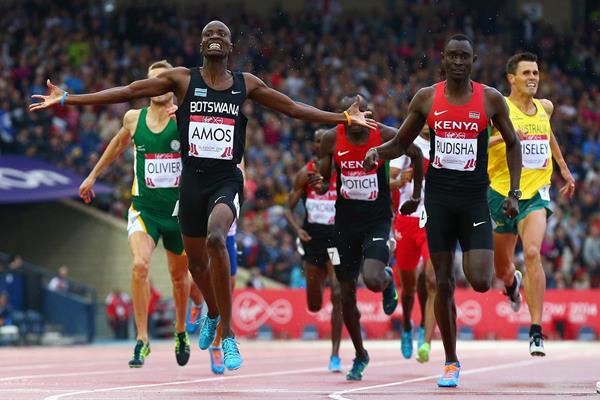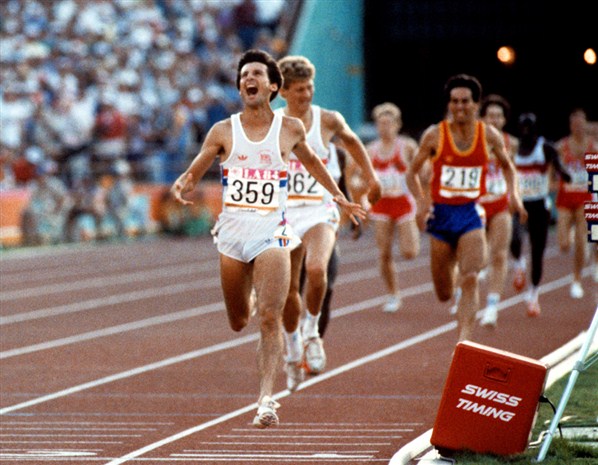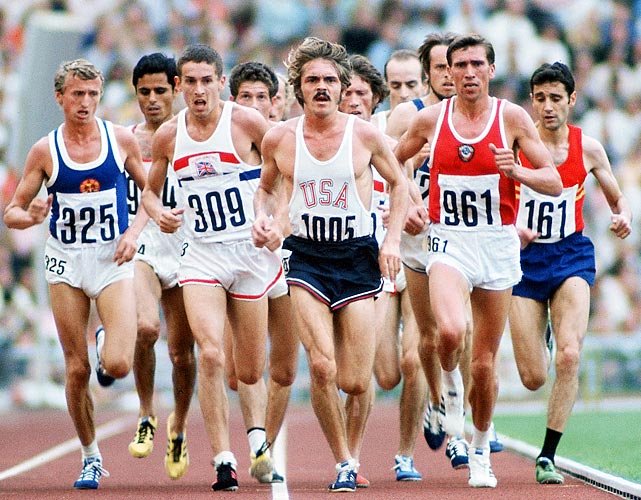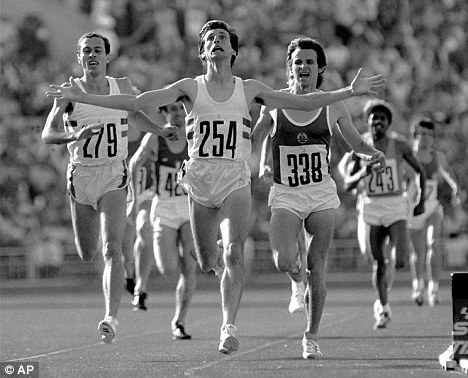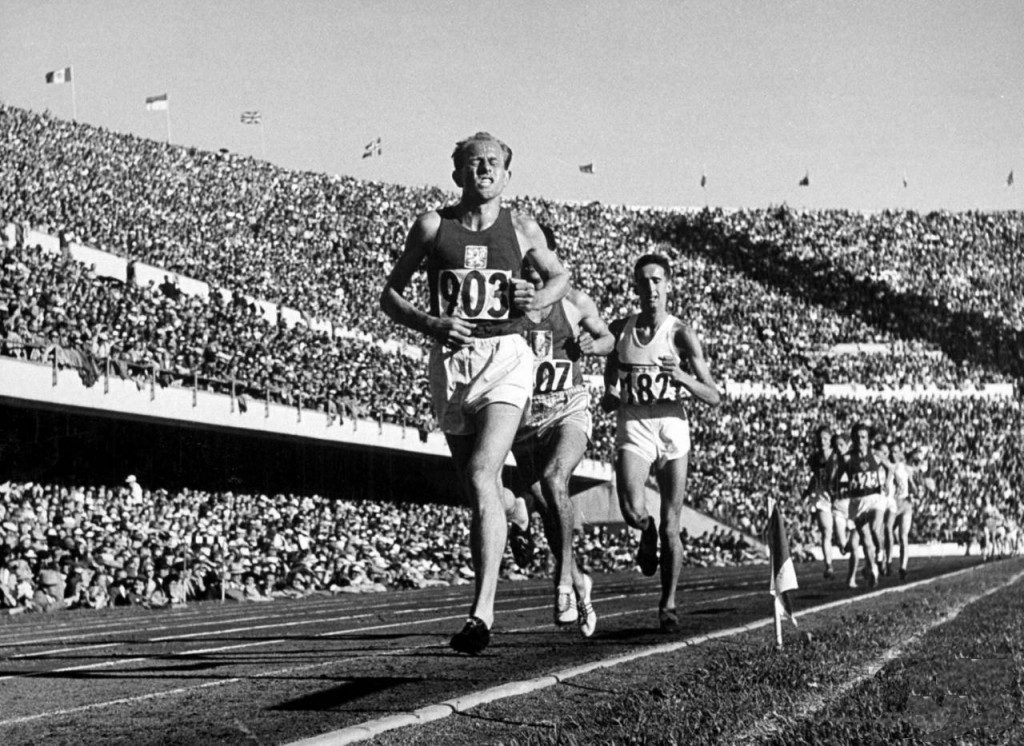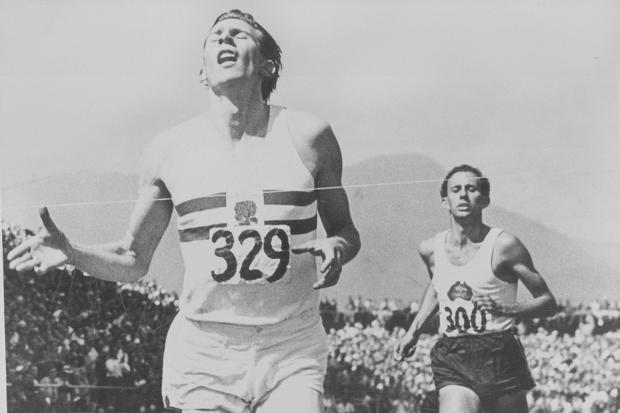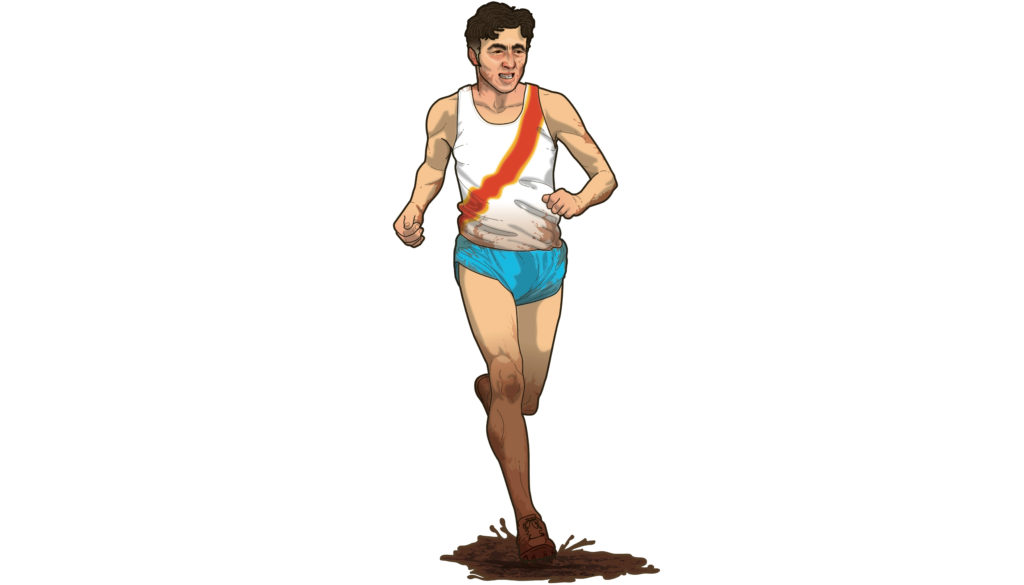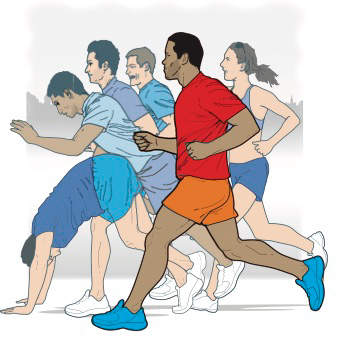We’ve all had our own running rivalries, whether it’s taking on our best friends or training partners over a half marathon, or that bloke who wears the union jack shorts to every cross-country race. Turns out, this sort of rivalry can actually be a good thing when it comes to your own performance.
According to a study, published in the journal Social Psychological and Personality Science, New York University researchers surveyed 72 runners about rivalries. More than half – 56.9 percent – said that there was at least one runner in their region with whom they felt a rivalry. Of course, history has had its fair share of running rivalries too. Here’s our pick of the six best.
Rudisha v Amos, Glasgow, 2014
Some rivalries are forged over years; this one between the world’s two top 800m runners is relatively new but probably the most fiercely contested in recent history. Rudisha spectacularly front ran his way to victory in the London 2012 Games, setting a new world record in the process, while Amos joined an elite handful of runners to break the 1:42 barrier. Their rivalry was renewed this summer in the Commonwealth Games in one of the races of the championships. Rudisha ran at the front, pushing the pace through 400m. He was still in the lead going in to the home straight but, with injury hampering his form, he wasn’t able to push on and instead Amos surged through for a fabulous victory. Has the master become the apprentice? Only time will tell.
Steve Cram v the Olympic 1500m title
OK, so strictly speaking, this isn’t a rivalry in the ‘mano a mano’ sense, but when you’re Steve Cram and you’ve won every other major title at least once, breaking world records at will, winning the Olympic gold is the only missing piece of the jigsaw. Too young in 1980, Cram was near the peak of his powers in 1984 but had the misfortune of meeting Coe in a race that was arguably one of the latter’s best. The following year – and with no championships – Cram had his best summer, breaking world records for 1500m, the mile and 2000m. After a great 1986, his fortunes started to wane, and in 1988 he took his last roll of the Olympic dice over 1500m. Unknown Kenyan Peter Rono stole the show, and in fact it was Peter Elliott who ended up on the medal rostrum with Cram a dejected fourth.
Prefontaine v Viren, Munich, 1972
It was the American wunderkind Prefontaine against the Finnish flyer, Viren (as well as a host of other excellent runners including Morocco’s Mohamed Gamoudi, Ian Stewart and Dave Bedford). The pace was pedestrian until, with four laps left to go, ‘Pre’ kicked in a 63-second lap, and then one in 61.2. Not done yet, Pre ran the penultimate lap in 60.3 with only Gamoudi, Stewart and Viren for company. Pre and Viren vied for the lead in the closing lap, with the latter sprinting home to the take the first of his four Olympic titles. In bronze medal position until the final few metres, a shattered Pre was passed by Stewart for fourth.
Coe v Ovett, Moscow, 1980
It was the stuff movies are made of (in fact, there’s one in the pipeline). Coe was the world record holder over 800m; Ovett seemingly unbeatable over 1500. The pair avoided each other in the run-up to the Olympic Games, so expectation was high as they toed the line for the 800m final. But it was the burly Ovett who bumped and barged his way to victory, while a disconsolate Coe had to settle for silver. Always the supreme competitor, Coe came back in the 1500m final, kicking away to win with Ovett ‘only’ managing third.
Pirie v Kuts, Melbourne Olympics, 1956
Pirie was a hard-as-nails front-runner who was adored by the crowds in his home country. No surprise, then, that he would take these tactics to the Melbourne 10,000m. After 3,000m, the two men were locked in an amazing duel. Pirie was still in front with five laps left to go but Kuts burst away winning by almost seven seconds in an Olympic record of 28:45.6, with a tired Pirie eventually only eighth in 29:49.6. The Briton would return later, though, winning the silver over 5,000m, again behind Kuts.
Bannister v Landy, 1954
The race for the first sub 4-minute mile gripped the world. So when Australian John Landy started edging near the barrier in 1953 the race was definitely on. Although perceived wisdom was that the feat would actually kill you, Bannister was immortalised in athletics history when, on May 6th 1954, paced by Brasher and Chataway, he willed his giant-limbed body to break the ultimate barrier. He would later beat Landy again in the metric mile at the Empire Games in the same year – and retire soon after.

